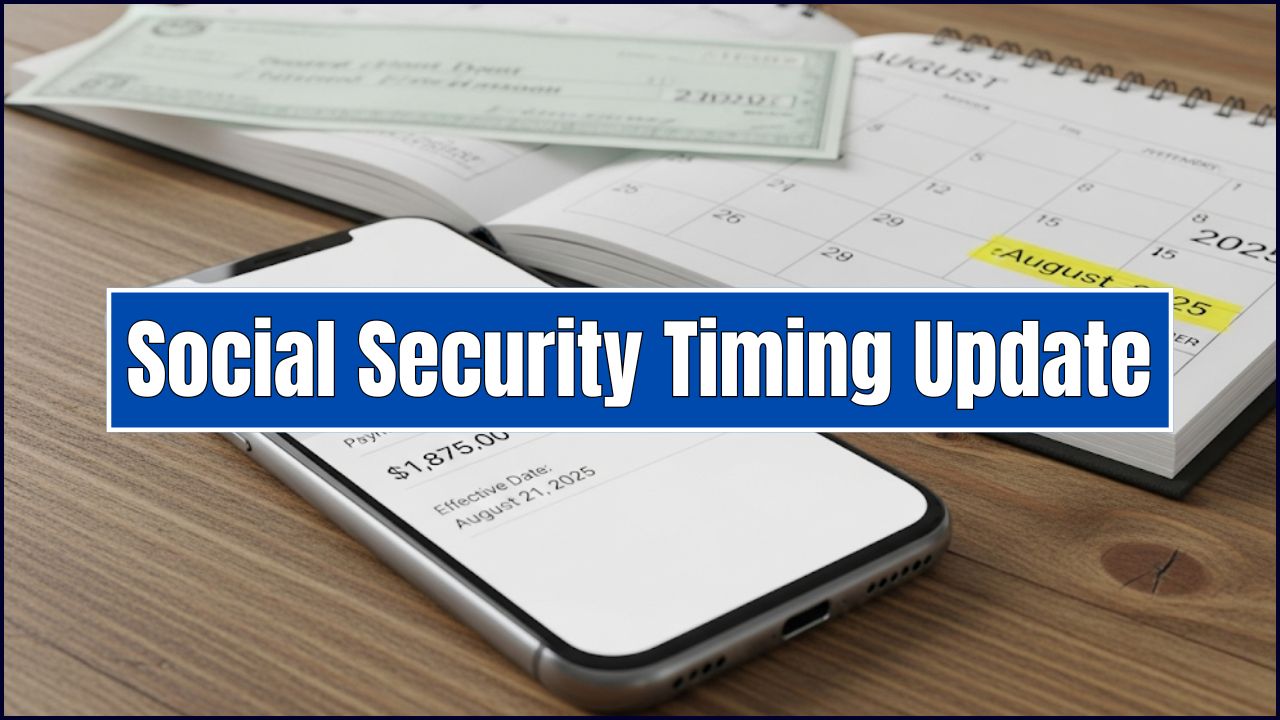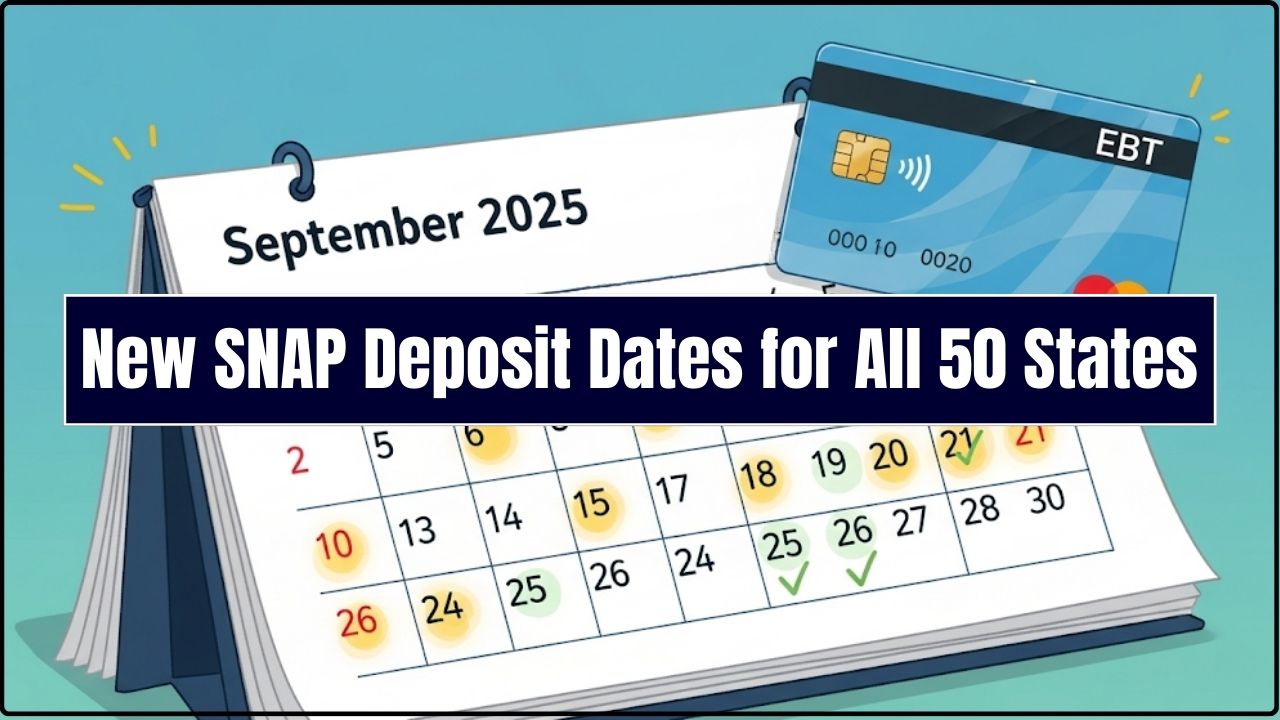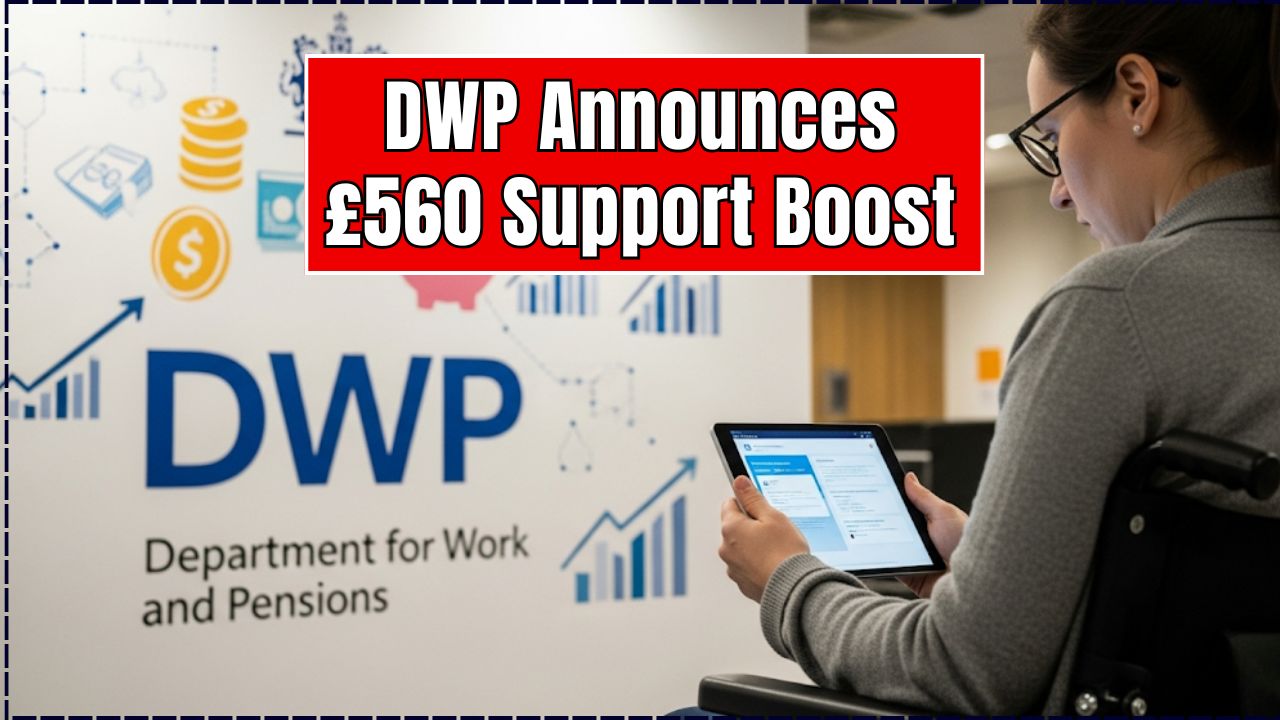UK Tax Fraud Hits New High—and it’s not just a headline to scare people. It’s real. In the 2024–2025 tax year, Her Majesty’s Revenue and Customs (HMRC) received a jaw-dropping 164,670 reports of suspected tax fraud—the highest on record. At the same time, HMRC paid out £852,438 (about $1.07 million USD) to whistleblowers who helped expose cheats.
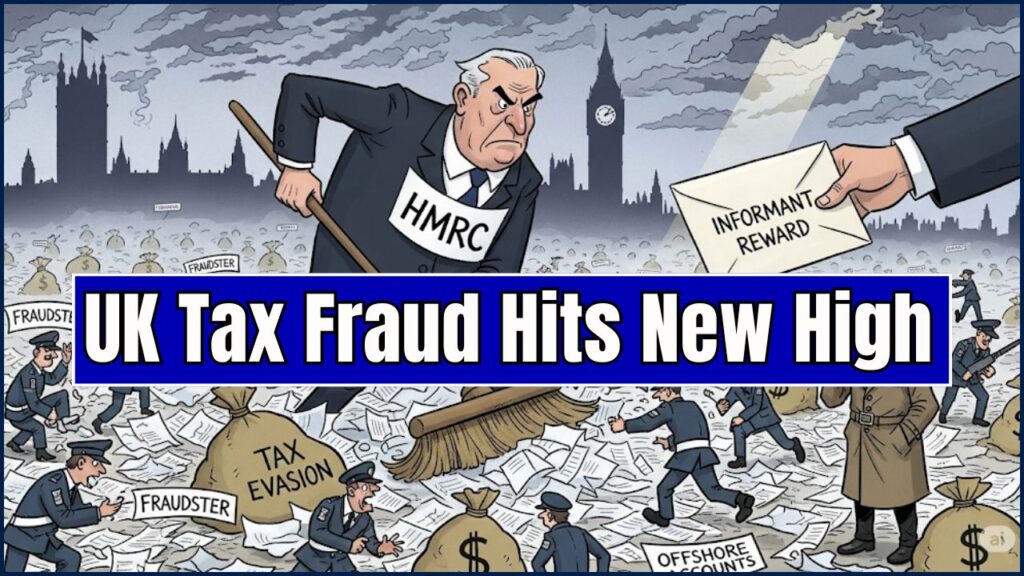
Funny thing? That’s actually 13% less than last year’s payouts despite the record tip-offs. Something doesn’t quite add up—and that’s why the government is rolling out a big shake-up.
UK Tax Fraud Hits New High
| Point | Details |
|---|---|
| Record Reports | HMRC logged 164,670 fraud tip-offs in 2024–25. |
| Reward Payouts | Whistleblowers received £852,438 (~$1.07M), 13% down from the year before. |
| Upcoming Reform | New percentage-based scheme—whistleblowers may get up to 25% of tax recovered. |
| Impact on Public | Fraud widens the UK’s £32B tax gap, hitting schools, hospitals, and infrastructure. |
So here’s the deal: UK Tax Fraud Hits New High isn’t just a catchy headline—it’s a sign of major change. Record reports, shrinking rewards, and now a new 25% payout system are transforming how HMRC handles whistleblowing.
For everyday taxpayers, the lesson is simple: play it straight. For businesses, it’s about staying compliant. And for potential whistleblowers, it’s the chance to make a difference—and maybe a paycheck too.
Why Tax Fraud Matters to Everyday Folks
Most people think tax fraud is something shady billionaires or offshore companies pull off. Truth is, it shows up everywhere—from cash-only contractors to eBay sellers who “forget” to declare income.
The cost? The UK loses an estimated £32 billion a year through the tax gap. That’s money that could fund hospitals, pay teachers, or repair potholes. In the U.S., we’d call it “everyone paying for someone else’s free ride.”
When fraudsters duck out of their tax bills, you and I foot the difference.
Timeline of Events: The Tax Fraud Crackdown
- 2024: HMRC begins piloting a new informant reward scheme, drawing inspiration from similar US and Canadian “whistleblower” programs. The goal is to incentivize reporting on high-value tax evasion.
- Early 2025: The pilot proves successful, leading to a significant increase in tips and the recovery of millions in unpaid taxes. The £850,000 paid to informants signals the scheme’s effectiveness.
- Late 2025: The government confirms plans to expand the informant program, dedicating more resources to it. New legislation is proposed to tighten tax rules and increase penalties.
- 2026 and Beyond: HMRC is set to become a “digital-first” organization, using advanced data analytics and AI to proactively identify fraud and compliance risks, reducing reliance on manual checks.
The Old Way: HMRC’s Current Reward System
For years, HMRC used a discretionary reward system. You call in a tip, HMRC checks it out, and if it leads to recovered money, you might get a payout. No guarantees, no percentages, just a pat on the back and sometimes a check.
- Example: Tip exposes £5 million in unpaid tax → payout might be just £5,000 (0.1%).
- No transparency. No certainty.
Meanwhile in the U.S., the IRS Whistleblower Program offers 15–30% of collected tax. That’s serious cash—enough to make insiders talk.
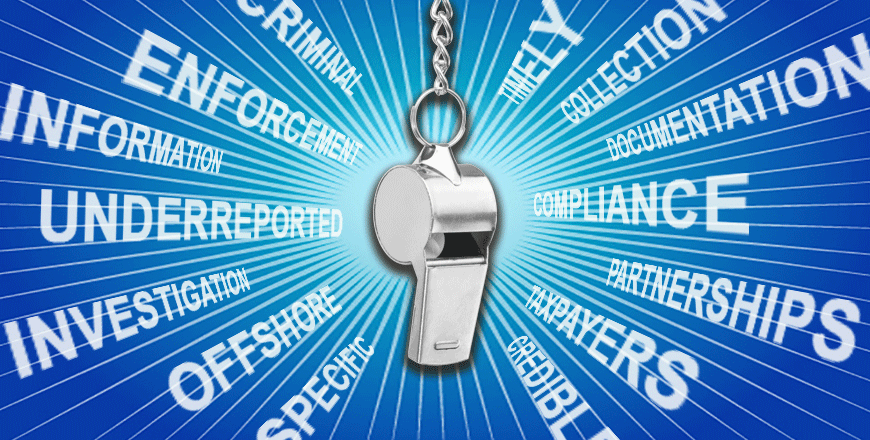
The Big Shake-Up: New Percentage-Based Scheme
The UK government finally got the memo. In March 2025, Chancellor Rachel Reeves announced plans to roll out a percentage-based reward system—up to 25% of tax recovered.
Why it matters:
- Bigger carrots = better info.
- Cuts out trolls—low-quality or fake tips become less attractive.
- Level playing field with U.S. and Germany.
Real-World Examples: Famous UK Tax Fraud Cases
- HSBC Swiss Leaks (2015): Whistleblowers revealed that HSBC helped wealthy clients hide billions offshore.
- Panama Papers (2016): Thousands of UK-linked shell companies exposed—shaking politics and finance.
- Celebrity Tax Schemes: From musicians to footballers, big names have been tied to “loan schemes” to dodge taxes.
These cases show how whistleblowers play a massive role in exposing fraud. With stronger incentives, expect more bombs to drop.
Step-by-Step Guide: How to Blow the Whistle
Here’s the easy version of how to report fraud:
Step 1: Spot It
Red flags include:
- Businesses that refuse card payments.
- Fake invoices.
- People boasting about “tax-free” cash.
Step 2: Report It
- UK: Use HMRC’s Fraud Hotline.
- US: Submit IRS Form 211.
Step 3: Let Authorities Handle It
Never confront the person yourself. It’s not safe.
Step 4: Potential Reward
If tax is recovered, you may earn a percentage payout (under the new system).
Pro Tip: Keep copies of any supporting evidence—but don’t break privacy laws to get it.
Global Comparison: Who Pays Best for Whistleblowers?
| Country | Reward System | Range |
|---|---|---|
| UK (Old) | Discretionary | £100–£50,000 |
| UK (New) | % of tax recovered | Up to 25% |
| USA | % of tax recovered | 15–30% |
| Germany | Case-based rewards | 5–15% |
| Canada | Offshore tax program | 5–15% |
Bottom line: The UK is finally catching up with global best practice.
Do’s and Don’ts for Whistleblowers
Do: Report directly to HMRC.
Do: Provide clear, specific info (names, dates, amounts).
Don’t: Try to handle it yourself.
Don’t: Break into files or computers to gather evidence.
Informant Rewards—Then vs. Now
| Feature | Before 2025 | After 2025 (New Scheme) |
| Payment Basis | Discretionary, small amounts | Significant, percentage of tax recovered |
| Typical Pay-out | Often less than a few thousand pounds | Can be tens or even hundreds of thousands |
| Publicity | Not widely publicized | Actively promoted to encourage tips |
| Targeted At | General public tips | Serious non-compliance in large corporates and high-net-worth individuals |
| Primary Goal | General compliance | Recovering significant amounts of tax debt |
How Businesses Can Stay Safe
For legit businesses, here’s how to avoid false accusations or HMRC headaches:
- Keep Clean Records: Digital bookkeeping with tools like Xero or QuickBooks.
- Pay What You Owe: Even side hustles and crypto are taxable.
- Use Tax Advisors: They’ll keep you compliant.
- Audit Yourself: Annual checks reduce mistakes.
Top 3 Tax Fraud Myths Debunked
- Myth #1: “Tax fraud is only about big businesses.” Wrong. While large-scale fraud grabs headlines, a significant portion of the “tax gap” comes from small businesses and individuals failing to declare income from side jobs. HMRC is cracking down on both.
- Myth #2: “Cash payments don’t need to be declared.” This is a huge mistake. All income, regardless of how it’s paid, is subject to tax. Failing to declare cash earnings is a form of tax evasion and can lead to severe penalties.
- Myth #3: “The tax authority won’t find out about my undeclared income.” With new digital-first strategies, HMRC is using data and AI to cross-reference bank records, online sales platforms, and other data points. It is now easier than ever for them to spot discrepancies.
Real-World Case Study
Sarah, a freelance graphic designer, noticed her former boss at a small marketing agency was regularly paying staff in cash for “extra” hours without issuing payslips. Worried about her own tax liability and feeling it was unfair, she used the HMRC reporting service. Within months, a formal investigation was launched. As a direct result of her detailed information, the business was audited, and the owner was forced to repay tens of thousands in undeclared taxes and fines. Sarah received a reward of over £25,000, demonstrating that even a single, credible tip can make a huge difference.
FAQs
Q1: Can anyone report tax fraud in the UK?
Yes—employees, customers, even neighbors.
Q2: Do whistleblowers stay anonymous?
Yes, but anonymity may limit your chance of reward.
Q3: Is whistleblower money taxable?
Yes, it counts as income. Both in the UK and U.S.
Q4: What’s the punishment for tax fraud in the UK?
It ranges from heavy fines to prison time (up to 7 years for serious fraud).
Q5: How long before rewards are paid?
It can take years—investigations are slow and complex.


